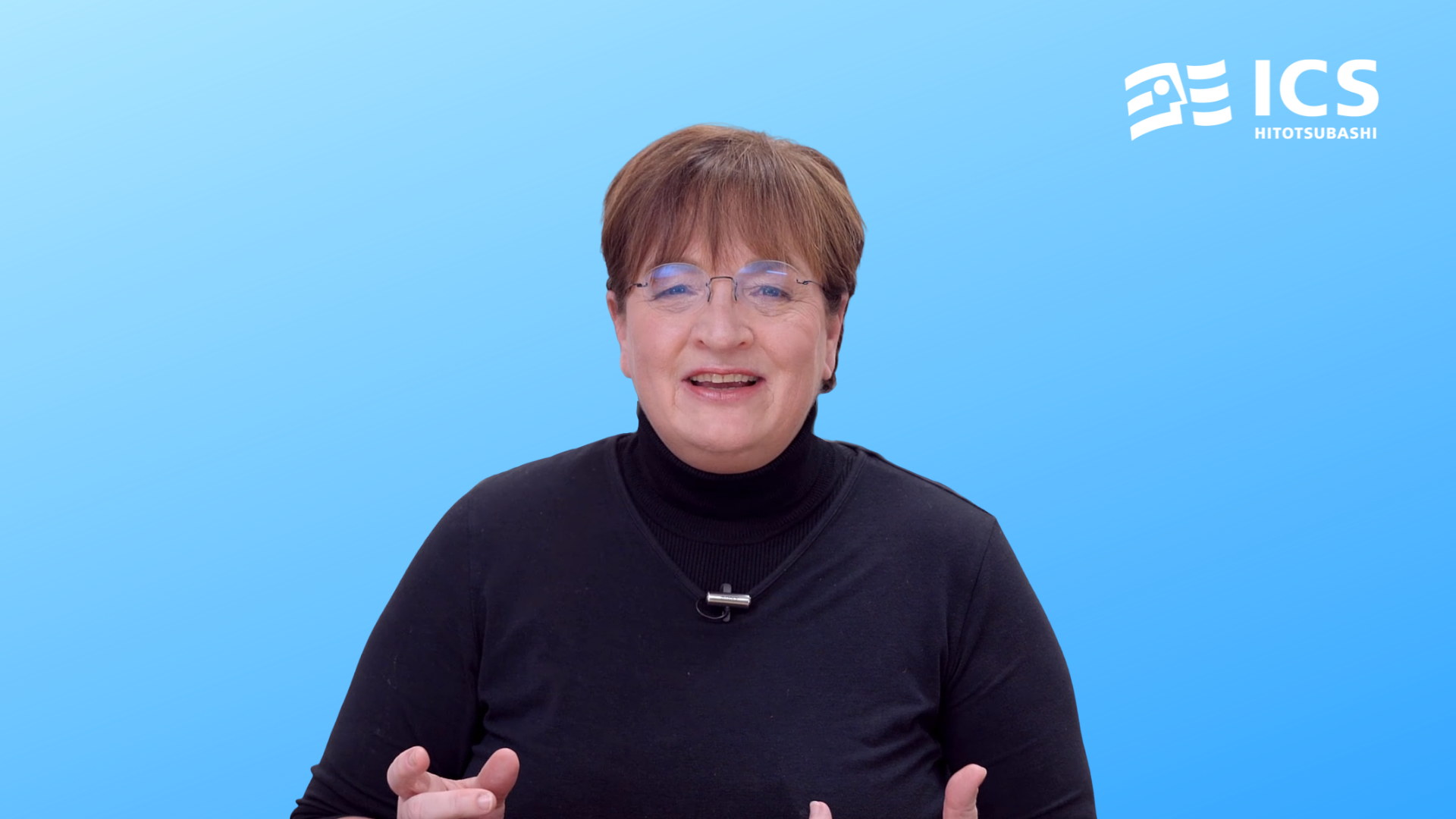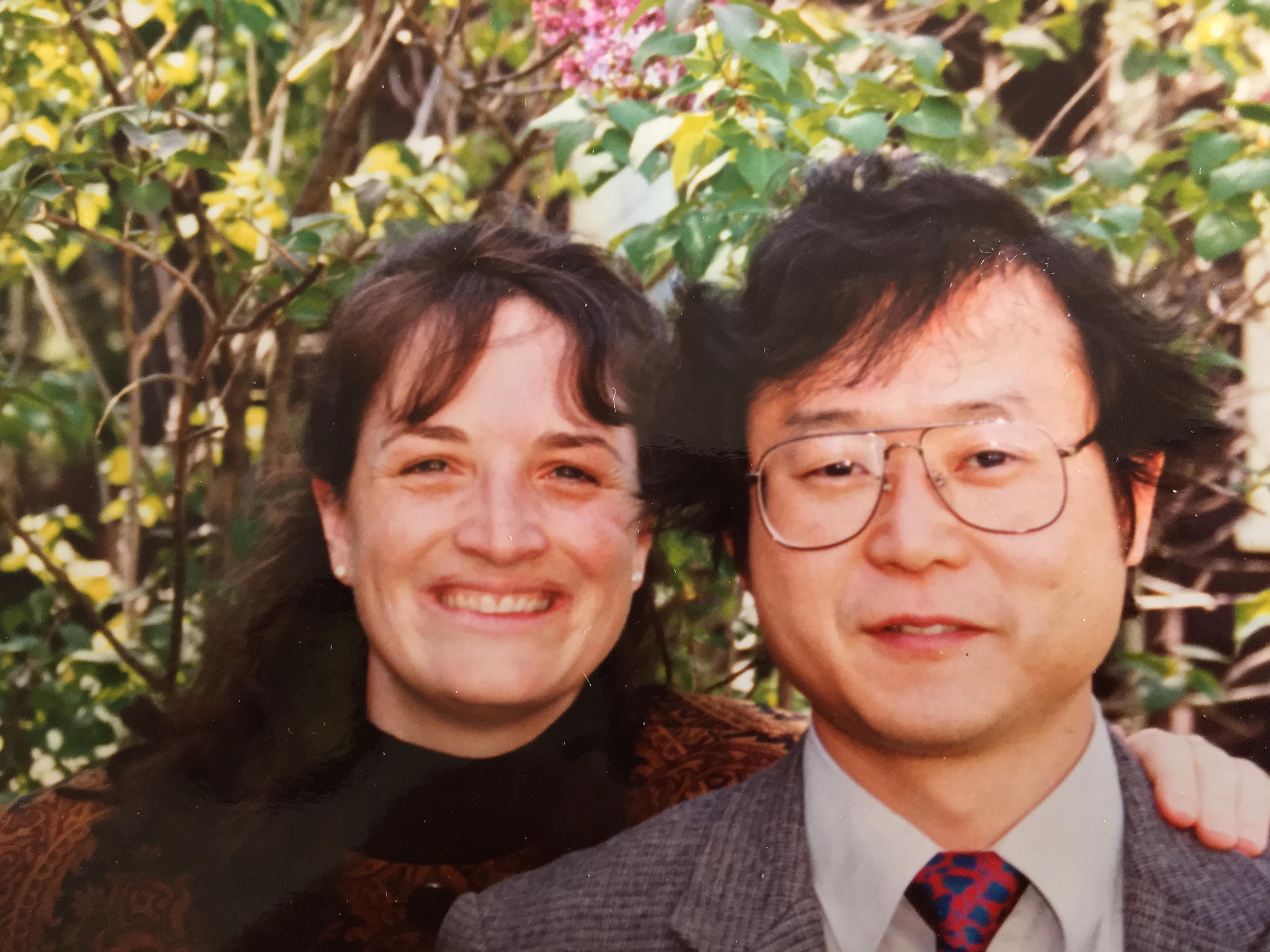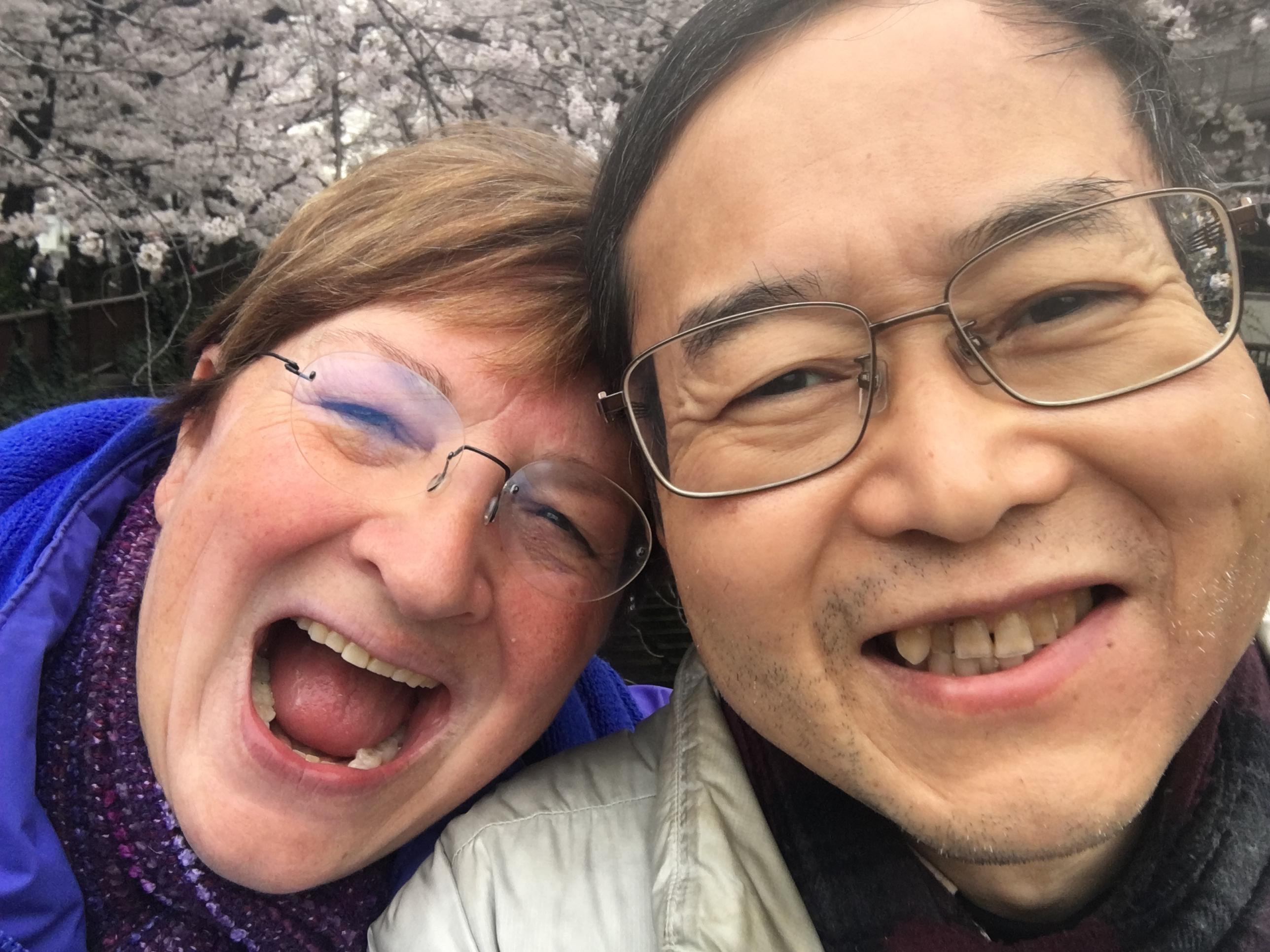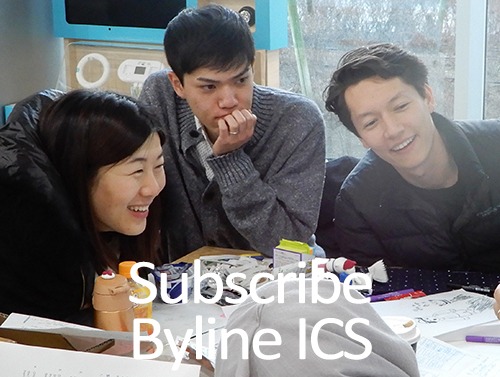In this edition of Byline ICS, we sat down with Associate Professor Patricia Robinson (Tish). Robinson’s interest focus on how managers can apply conflict transformation and coaching skills to lead diverse teams. Robinson’s interest in conflict resolution stems from two decades’ worth of corporate training and consulting in companies such as Berlitz, Denso, Dentsu, Goldman Sachs, JTB (Japan Travel Bureau), Mitsui Trading, Mizuho Financial Group, Nikkei Shimbun, SMBC Mitsui Sumitomo Bank, Yamaha Music, and Yamaha Motors, among others.

Q1. Thank you so much for your time today, Tish! It is great to have this opportunity with you. You teach Organizational Behavior (OB2) at ICS, so can you start by telling us a little about this course?
One of the core skills OB2 focuses on is Conflict Transformation. Nobody likes conflict at work, especially when it occurs among our subordinates or team members. Why? One reason is that often we don’t know how to intervene to support team members to resolve their conflicts. However, many managers spend up to 40% of their time dealing with conflict, and research shows that 60 to 80% of difficulties in organizations are the direct result of strained relationships between employees. [i]
OB2 provides skills and structures that have an 85% success rate of resolving conflict in hundreds of thousands of conflicts. The goal is to help managers learn to intervene more skillfully in conflicts across culture, functional expertise, gender, age, and work style preferences, among others. Through learning by doing, this experiential course provides managers with the leadership and EQ skills, structure, and practice to support their team to resolve work-related conflicts, repair relationships, and feel heard.
To transform conflict successfully often requires that managers handle things in a different way than they may in other areas of their job. For example, instead of telling team members what to do to solve their interpersonal differences, it is easier to get their buy-in by asking them what they think they should do to resolve their issues.

Q2. It seems difficult though, for some students who come from command-and-control cultures to get accustomed to this skill.
Yes, you’re right about that! At the same time, everyone likes to be heard and acknowledged. In fact, the number one reason people quit their jobs is that they don’t feel heard or acknowledged by their boss.[ii] While OB2 focuses on workplace disputes, the skills learned in this course can be applied at home, school, or anywhere else people end up in conflict, which is everywhere. EMBAs in the GNAM SNOC Conflict Transformation Course, in particular, have applied these skills immediately in their jobs with great success.
Q3. How does online work impact the use of this skill?
As we move more and more online, we are less inclined to say, “Hey, you want to go with me to have lunch? Or a beer or coffee after work?” When we miss these opportunities to see each other face to face over lunch or in all types of work situations, we become less multi-dimensional human beings to each other, and we become more one-dimensional, sometimes just a name or face on zoom.
I think one reason people feel zoom fatigue is that they feel dehumanized and unseen by others. Since we don't have that rich interaction that allows us to trust people, we have more misunderstandings which can lead to more conflicts. When we only know our colleagues from large zoom meetings and don’t know them well as individuals, we are more likely to jump to conclusions, than to give them the benefit of the doubt.
Some of the basic skills of conflict transformation are the basic human skills of listening, asking open-ended questions, and being curious. When we meet face-to-face at work, it isn’t unusual to ask our co-workers, “How's your husband’s heart problem doing?” or “How is that project going?” As we move more and more online, we need to consciously make time to chat and ask questions to each other like, “Tell me how you’ve been doing lately. How are your other projects doing?” How often does anybody ask you about yourself like this on zoom? It is much rarer online than in person.
Another skill in dealing with conflicts that arise from misunderstandings is Dr. John Gottman’s “bids towards.” Bids towards are gestures that “bid” for relationship or relationship repair. These gestures can be as small as saying good morning the next day after a debate or disagreement in a meeting. The goal is just to establish or re-establish contact. One Japanese company increased morale by asking everyone to go around and greet everyone else in the office one-by-one in the morning. Within a month, just this small, cost-free gesture made a difference.
Q4. What are some other concepts that are taught in your OB2 class?
There is a large body of research that shows that one of the deepest human needs of all human beings in all countries around the world, even people in collectivist environments, is the need for some level of personal autonomy. [iii] People want a sense of self-determination, even if it is only whether to answer their email first or write that report first. Through role-play, this course helps managers feel how much their subordinates value some level of self-determination in resolving their own interpersonal conflicts.

Japan currently views diversity through a fairly narrow lens of gender diversity. However, Japan has many other forms of thought diversity, including diversity across industry or corporate culture, functional expertise, gender, age, sexual orientation, work style preferences, and many other dimensions. The late Professor Sigal Barsade at Wharton showed that diverse teams are both the most high performing and innovative and the worst performing and least innovative. One way to transform teams from dysfunctional to highly creative and innovative is to provide psychological safety and have team members understand each other better. One hallmark of value-creating teams is psychological safety, “a shared belief that the team is safe for interpersonal risk taking” as shown in the research at Google. [iv] To create psychological safety, the next level of Diversity, Equity, and Inclusion training would include more chances for team members know and understand each other better, along with courses like conflict transformation to provide managers with skills to transform thought diversity and conflict into new insights, perspectives, and understandings.
Q6. We’d like to change the topic a little and shift the gear towards a more personal question. What lead you to the work that you do and what brought you to Japan?
While I was a doctoral student at MIT under Eleanor Westney, I came to Japan on two Fulbright scholarships, under the generous mentorship of Professor Nonaka. At that time, I met Ken Kusunoki who was already a young star! I also had the great fortune to meet Jun Yokokawa, my husband, at his company’s Ohanami. After finishing my Ph.D., I joined the faculty at the NYU Stern School, and my husband, Jun left his lifetime job in Japan to join KPMG in New York. We then followed the Dot Com boom of the late 1990s to Silicon Valley, where Jun worked for a start-up and I taught at UC Berkeley. I then had the great fortune to receive another Fulbright Faculty Fellowship while Jun joined another start-up, which brought us to Japan and to ICS. I am very grateful to Jiro Nonaka and Ken Kusunoki for all they have done for me.


Q7. You always introduce new concepts and ways of thinking through your classes, which you can only do when you keep updating yourself. You had a 1-year sabbatical at Stanford in 2020, what was the focus during your time there?
During my sabbatical at Stanford, I took a lot of training and interviewed a lot of mediators. I asked one very gifted mediator, Annette Graff, what made her such an effective conflict transformer, and she responded, “I always try to validate people, and notice and express gratitude for particular things they do for the organization.” It doesn't cost any money to say, “Oh, that report was beautifully done” or “That client presentation showed a lot of preparation and attention to detail.” It is important that the appreciation be a concrete thing, so make it as specific as you can. One nice thing about appreciation is that's free. It doesn't cost anything to tell people when they do a good job and point out exactly what they did well.
We love those examples; it’s simple and easy to do, and it may seem like a small gesture, but it can go a very long way. Thank you so much for sharing your thoughts with us today, Tish!
ROBINSON, Patricia (Tish)

She received her MBA and Ph.D. from the MIT Sloan School of Management at the Massachusetts Institute of Technology and her BA from Pomona College. Robinson has taught courses in management and international business at NYU Stern School of Business, and corporate strategy and Japanese economics at Harvard University. She has been a visiting researcher at UC Berkeley’s Institute of Industrial Relations (Haas School of Business), the Japan Institute of Labor Policy and Training, and NTT.
[i]Daniel Dana, Managing Differences: How to Build Better Relationships at Work and Home (2005, 4th ed.); Barbara J. Kreisman, Insights into Employee Motivation, Commitment and Retention (2002)
[ii] De Smet, Aaron; Dowling, Bonnie; Mugayar-Baldocchi, Marino; Schaninger, Bill. 2021. “Great Attrition” or “Great Attraction”? McKinsey Research. Accessed 2022/2/22:
https://www.mckinsey.com/business-functions/people-and-organizational-performance/our-insights/great-attrition-or-great-attraction-the-choice-is-yours#:~:text=By%20contrast%2C%20the%20top%20three,at%20work%20(51%20percent).
In this study, the top three factors employees cited as reasons for quitting were that they didn’t feel valued by their organizations (54%) or their managers (52%) or because they didn’t feel a sense of belonging at work (51%).
[iii] Yu, S., Levesque-Bristol, C. & Maeda, Y. General Need for Autonomy and Subjective Well-Being: A Meta-Analysis of Studies in the US and East Asia. 2018. J Happiness Stud 19, 1863–1882.https://doi.org/10.1007/s10902-017-9898-2
[iv] Amy Edmondson. 2018. The Fearless Organization: Creating Psychological Safety in the Workplace for Learning, Innovation, and Growth. Wiley.









